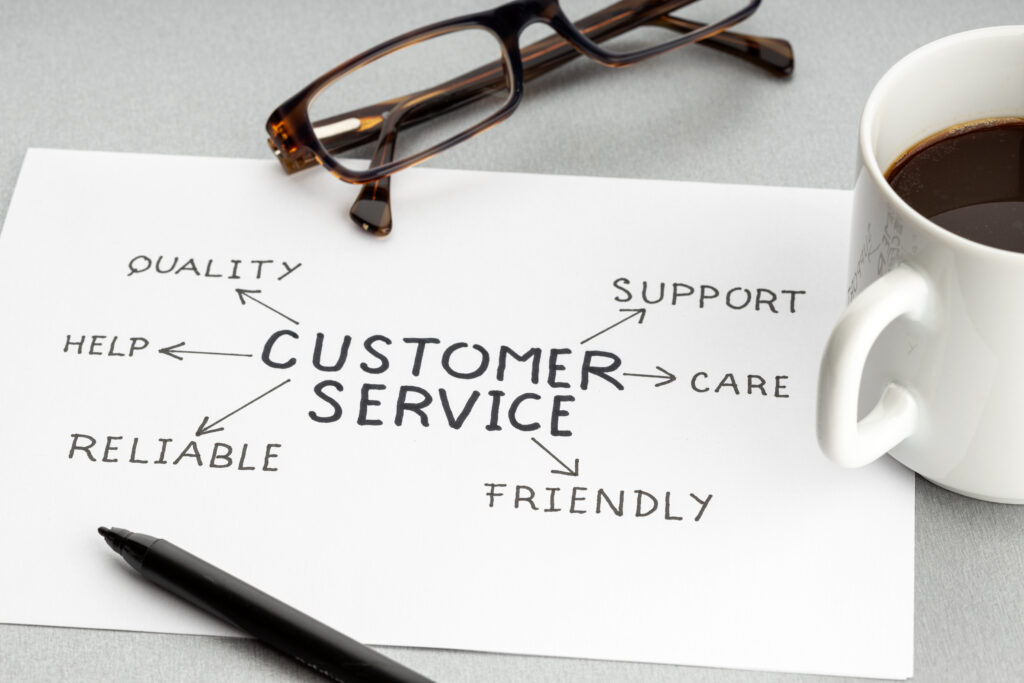Customer Service Excellence: Key Strategies for Training and Developing Representatives
At the heart of any successful business is customer excellence.
Providing outstanding customer service is essential to achieving this goal, which is why it’s so important to ensure that customer service representatives have the necessary training and development.
In this blog post, we’ll discuss key strategies for training and developing customer service representatives so that they can provide excellent customer service and ensure that customers have a positive experience. Let’s get started!
Understanding the Importance of Customer Service Excellence

Customer service excellence is a vital aspect of any business’s success.
It not only helps in building customer loyalty and satisfaction but also contributes to the overall reputation and growth of the company. A positive customer experience can lead to repeat business, positive reviews, and even referrals.
In today’s competitive market, customers have a plethora of options at their disposal. If they are dissatisfied with the service provided by one company, they can easily switch to another. This makes it crucial for businesses to prioritize customer service and strive for excellence.
Customer service excellence is about meeting and exceeding customer expectations. It involves going the extra mile to ensure customer satisfaction and resolving any issues promptly and effectively. When customers feel valued and heard, they are more likely to remain loyal to a brand and spread positive word-of-mouth.
Furthermore, customer service excellence has a direct impact on a company’s bottom line. Satisfied customers are more likely to spend more and become long-term customers. On the other hand, poor customer service can lead to lost sales and negative online reviews, which can tarnish a company’s reputation.
Identifying Key Skills and Qualities for Customer Service Representatives

When it comes to training and developing customer service representatives, it is crucial to first identify the key skills and qualities that are necessary for success in this role. Customer service representatives are the frontline of any business and play a vital role in ensuring customer satisfaction and loyalty.
One of the most important skills for customer service representatives is effective communication. They need to be able to listen actively to customers’ concerns, empathize with their frustrations, and provide clear and concise solutions. Excellent verbal and written communication skills are essential to effectively convey information and address customer needs.
In addition to communication skills, customer service representatives should also possess strong problem-solving abilities. They need to be able to think on their feet, analyze situations quickly, and come up with appropriate solutions that meet the needs of the customer. Patience and a positive attitude are also key qualities for customer service representatives, as they often have to deal with irate or difficult customers.
Empathy is another crucial quality for customer service representatives. Being able to understand and relate to customers’ emotions and perspectives can go a long way in building rapport and trust. This includes the ability to put oneself in the customer’s shoes and show genuine care and concern.
Lastly, customer service representatives should have good product and company knowledge. They should be well-versed in the products or services their company offers, as well as the company’s policies and procedures. This allows them to provide accurate information and guide customers effectively.
Creating a Comprehensive Training Program

One of the crucial aspects of training and developing customer service representatives is creating a comprehensive training program. This program lays the foundation for representatives to understand the organization’s customer service standards and expectations.
To create a comprehensive training program, it is important to first assess the specific needs and goals of the organization. This includes understanding the type of customers the representatives will be dealing with, the specific challenges they may face, and the skills and knowledge required to excel in their roles.
The program should include a mix of theoretical and practical training. This can involve classroom sessions to teach representatives about customer service principles and best practices. It should also include interactive activities and role-playing exercises to simulate real-life customer service scenarios.
Additionally, the training program should provide opportunities for representatives to shadow experienced team members or managers, enabling them to observe and learn from professionals who have excelled in the field. This hands-on experience can significantly enhance their learning and skills development.
A comprehensive training program should also incorporate continuous assessment and feedback mechanisms. Regular assessments and evaluations help identify areas where representatives may need additional training or support. Feedback from trainers, managers, and customers themselves can offer valuable insights for improvement.
Finally, it is essential to review and update the training program periodically to ensure it remains relevant and aligned with evolving customer needs and industry trends. By consistently refining and enhancing the program, organizations can ensure their customer service representatives receive the most up-to-date training that equips them to deliver exceptional customer experiences.
Implementing Ongoing Development and Coaching Strategies

Once you have established a comprehensive training program for your customer service representatives, it is essential to continue their development and provide ongoing coaching to ensure their continued success. Ongoing development and coaching strategies play a vital role in honing their skills, improving their performance, and enhancing the overall customer experience.
One effective strategy is to conduct regular performance evaluations and provide constructive feedback to your representatives. These evaluations can help identify areas for improvement and set goals for individual growth. Additionally, offering regular coaching sessions allows you to address specific challenges or concerns and provide guidance on how to overcome them.
Another valuable approach is to provide ongoing training opportunities for your representatives. This can include workshops, webinars, or online courses that focus on enhancing customer service skills, communication techniques, or problem-solving abilities. By investing in their development, you are showing your representatives that you value their growth and are committed to their success.
Furthermore, encouraging teamwork and collaboration among your representatives can lead to shared learning and growth. Creating a supportive environment where they can share experiences, best practices, and challenges can be highly beneficial for their ongoing development. Consider implementing regular team meetings or group projects to foster this collaborative spirit.
Lastly, leveraging technology can greatly enhance your ongoing development and coaching strategies. Utilize customer service software or CRM systems to track performance metrics and identify areas of improvement. Additionally, consider implementing e-learning platforms or mobile applications to provide continuous learning opportunities for your representatives.
Utilizing Technology to Enhance Customer Service Training

In today’s digital age, technology plays a crucial role in enhancing customer service training.
With the advancements in artificial intelligence (AI), virtual reality (VR), and chatbots, companies can now provide more interactive and immersive training experiences for their customer service representatives.
One way technology enhances customer service training is through the use of AI-powered chatbots. These virtual assistants can simulate real customer interactions, allowing representatives to practice their skills in a safe and controlled environment. Chatbots can also provide immediate feedback and suggestions for improvement, helping representatives to learn and grow quickly.
Another technology that enhances customer service training is VR. VR allows representatives to experience realistic scenarios and practice their problem-solving skills in a simulated environment. For example, they can handle difficult customers or resolve complex issues without the risk of negative consequences. This type of training not only boosts confidence but also helps representatives develop effective communication and decision-making skills.
Additionally, technology enables companies to provide on-demand training materials. With the use of learning management systems and online platforms, representatives can access training modules, videos, and resources anytime, anywhere.
This flexibility allows representatives to learn at their own pace and revisit materials whenever necessary.
Ready to sell your property? Give us a call today and learn more about our professional photography services that can boost your property listing!
Plus, explore our virtual assistant coaching program to level up your business. Don’t forget to tune into our new podcast for even more valuable insights!
